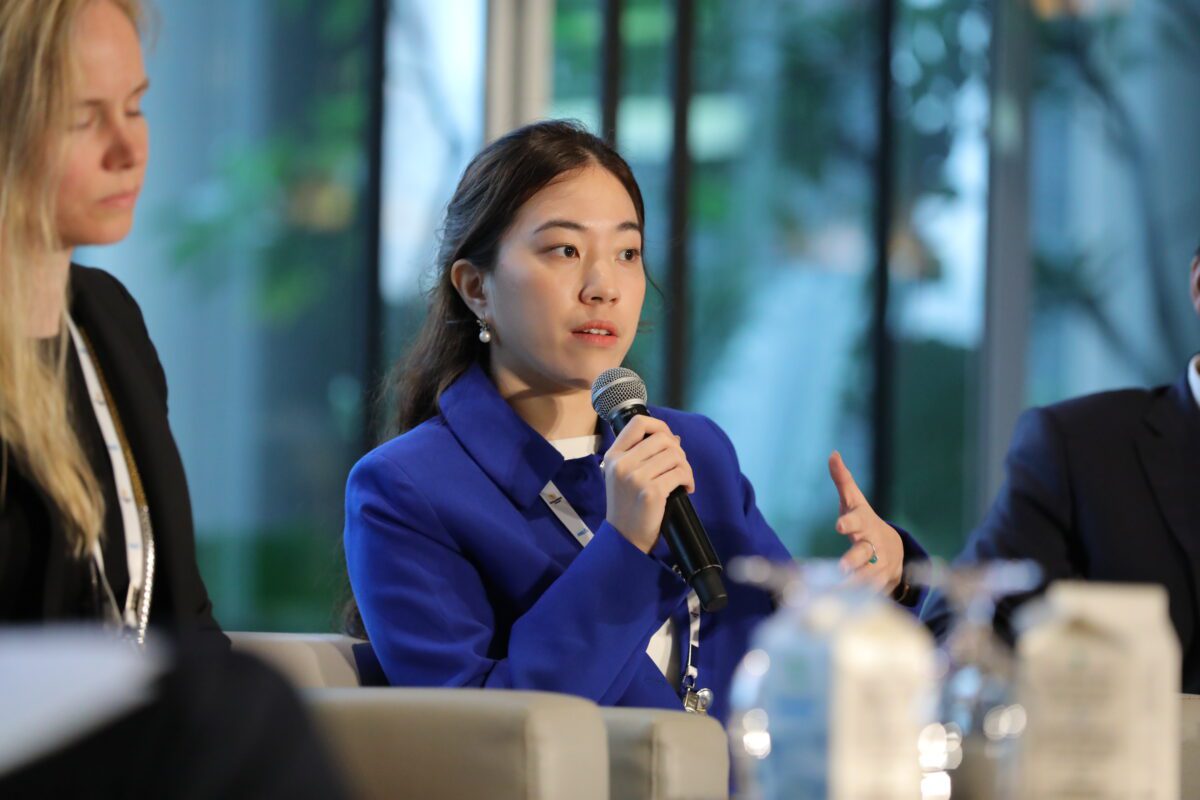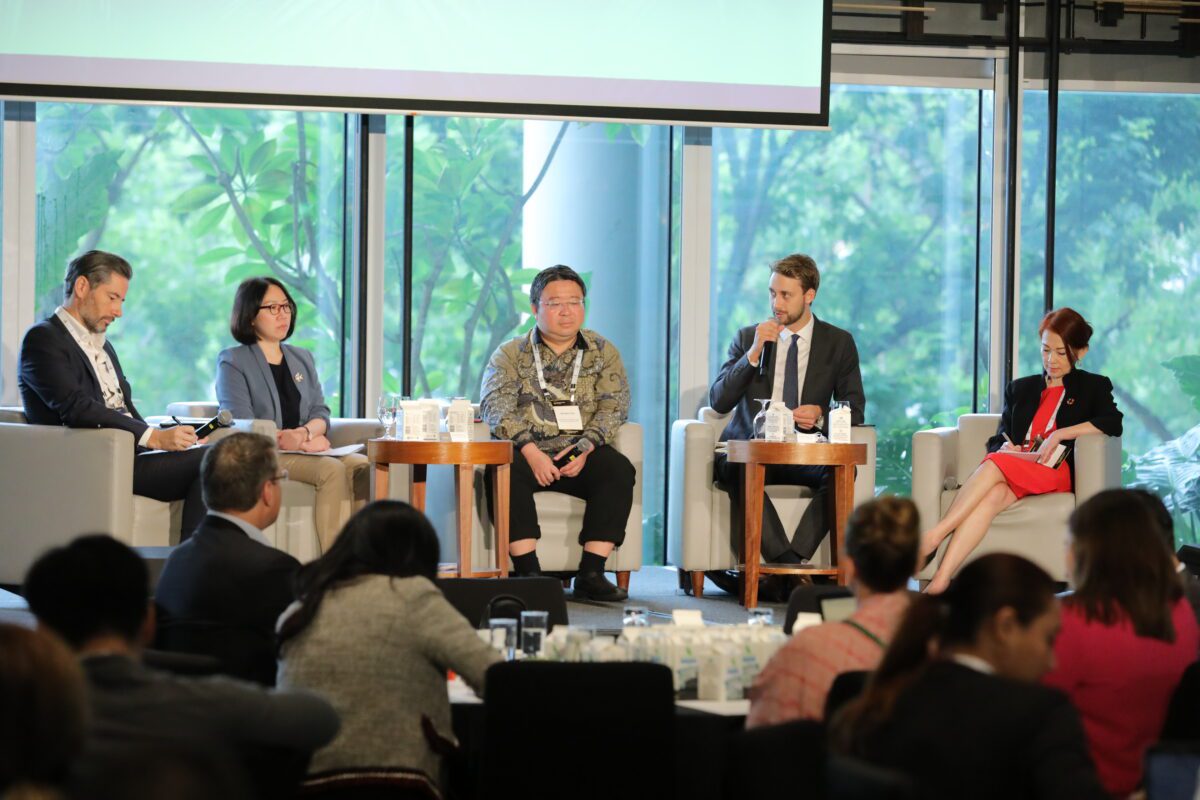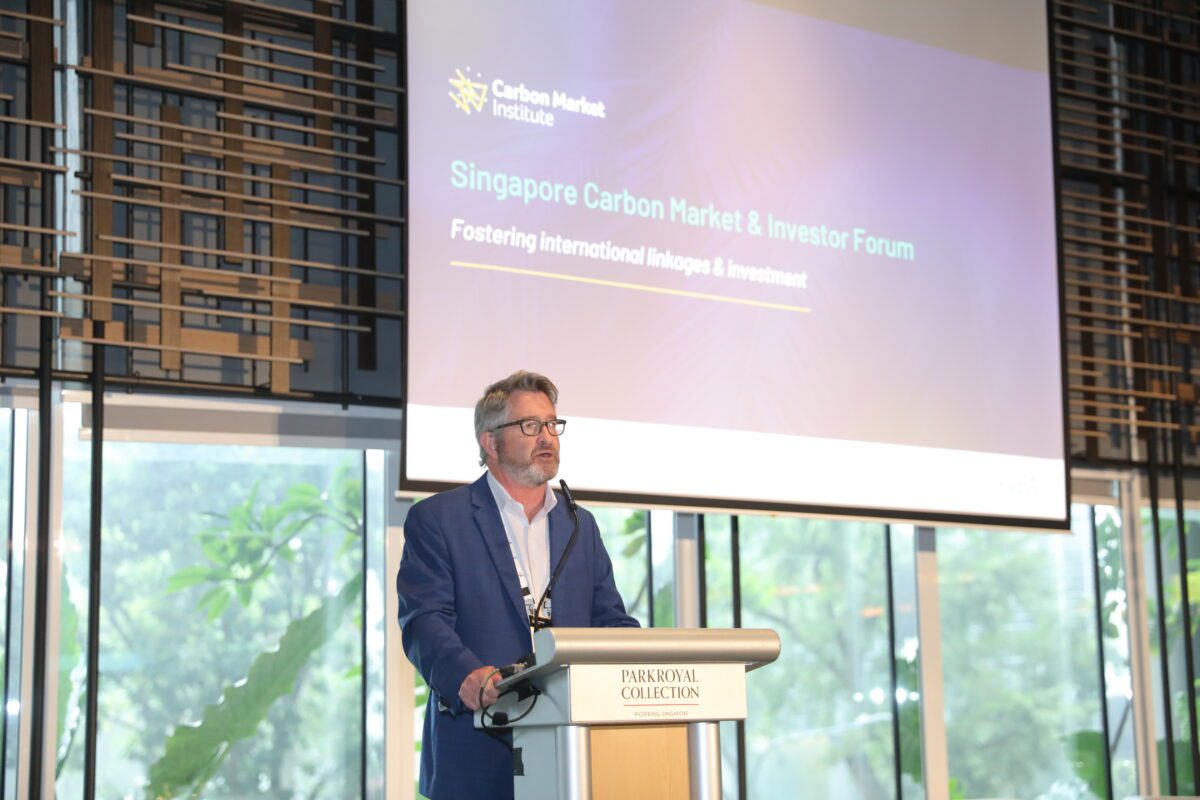High-integrity carbon markets can help fight climate change, bring economic benefits to communities, and restore natural environments, the Nature Conservancy told a Singapore Carbon Market & Investor Forum.
The Nature Conservancy values carbon markets because they can deliver this trio of benefits, the global environment group’s acting Singapore Director, Thomas Brzostowski told the forum.
Brzostowski gave a keynote address at the forum, which is being hosted by Australia’s Carbon Market Institute, on the important role of nature-based carbon projects.
“The science is really clear, there’s going to be no path to reach global climate goals without unlocking the power of nature-based solutions for climate,” he said.
“It’s just that simple,” Brzostowski said.
“Forests, wetlands, grasslands, mangroves and other ecosystems serve as vital carbon sinks. And protecting these ecosystems, restoring degraded habitats and supporting farmers and landowners with regenerative land use practices has the potential to realise about one-third of the emissions reductions needed to limit global warming and keep the climate within safe boundaries.”
But even though these ecosystems are a large part of the solution to climate change, only about 8% of global climate finance currently goes to nature-based solutions, he said.
To better equip local communities to participate in carbon markets and benefit from them, the Nature Conservancy last month teamed up with seven other groups, including Mandai Nature, WWF Singapore, Conservation International and the Wildlife Conservation Society to launch the Southeast Asia Climate and Nature-based Solutions Coalition, Brzostowski said.
Based in Singapore, the Coalition aims to accelerate investment in high-quality, high-integrity nature-based projects in the region that have the potential to generate carbon credits, he said.
Wei Mei Hum, Global Head of Carbon and Environmental Products with Singapore-headquartered digital carbon trading platform ACX (formerly the AirCarbon Exchange), emphasised the importance of delivering community benefits in her forum presentation.
She suggested that communities hosting carbon projects receive a financial benefit every time a carbon credit from that project is traded, not just when the credit is first sold.
Currently, after they first sell a credit, communities are “not benefiting from the subsequent speculation or potential price increases”, she said. But the ability to track and trace credits means “they don’t have to lose contact with what they have created after the first sale”.
Hum noted that the carbon credits that deliver community or biodiversity co-benefits do attract a price premium, adding that more work needs to be done to provide buyers with assurance that these co-benefits are valid.
Hum suggested that technology such as blockchain be used to verify that finance and other co-benefits are flowing from projects to communities.
Vivek Dugar, Co-Founder and Director of carbon project developer WeAct Pty Ltd, told the forum that there had been a clear shift over the years from industrial carbon projects, to projects that help distribute finance into communities.
It is crucial that carbon finance continues to “go deeper into communities”, Dugar said.
The financial benefits associated with carbon projects must “percolate right into the social fibre of this planet,” he said.
Japan-based Co-Founder of carbon project developer South Pole, Patrick Buergi, told the forum that carbon finance is “not the silver bullet” for solving all climate problems.
However, it is “still a very valid and important instrument” for channelling climate finance to the developing world.
We need to provide the financial means for the developing world to decarbonise, Buergi said.
Critics should draw attention to limitations within carbon markets, and markets must improve where they can, however they should also offer alternative solutions that can channel finance into activities such as avoiding deforestation, he said.
CMI contact in Singapore: Emily Tammes on (+61) 427 047 395 or emily.tammes@carbonmarketinstitute.org
CMI contact in Australia: Thomas Hann on 0408 880 536 or thomas.hann@carbonmarketinstitute.org
About the Carbon Market Institute
The Carbon Market Institute (CMI) is a member-based institute accelerating the transition towards a negative emissions, nature positive world. It champions best practice in carbon markets and climate policy, and its over 150 members include primary producers, carbon project developers, Indigenous organisations, legal, technology and advisory services, insurers, banks, investors, corporate entities and emission intensive industries. The positions put forward constitute CMI’s independent view and do not purport to represent any CMI individual, member company, or industry sector.
For further information, contact Thomas Hann on 0408 880 536 or thomas.hann@carbonmarketinstitute.org



